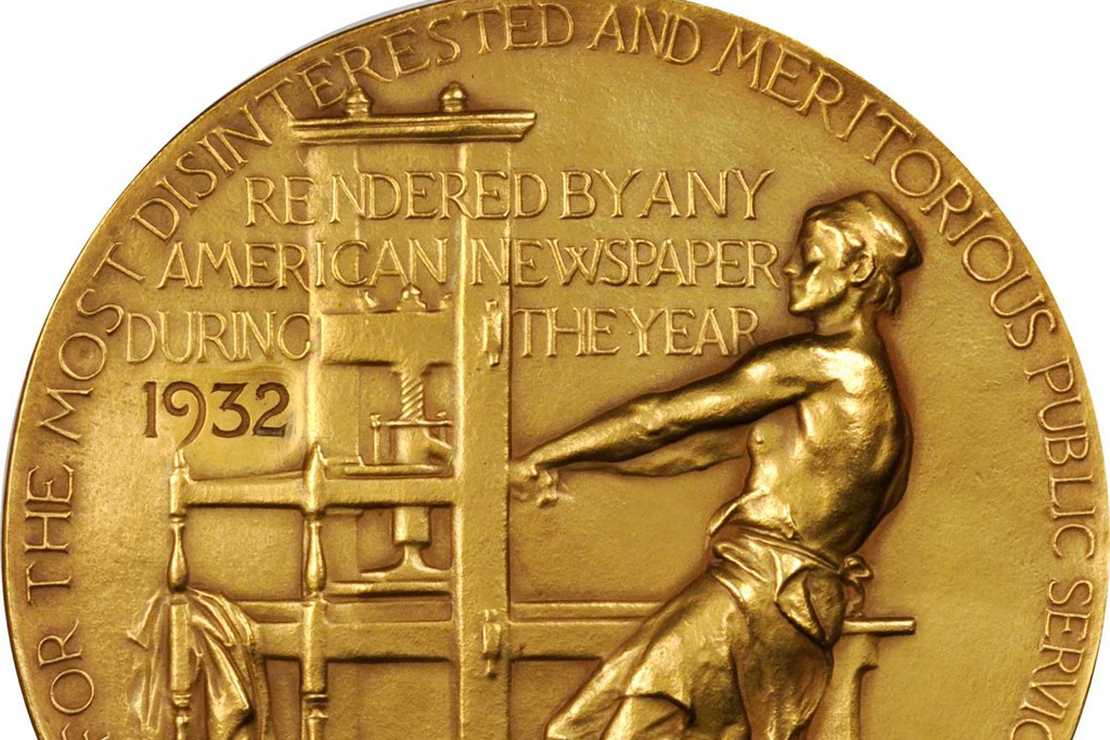
Our weekly recognition of less-than-meritorious excellence in journalism is worthy of Pulitzer Prize consideration.
As an extension of the media-mocking venture at Townhall, Riffed From The Headlines, we once again recognize the exalted performances in our journalism industry and compile worthy submissions to the Pulitzer Prize board in numerous categories. To properly recognize the low watermark in the press, let us get right to the latest exemplars of journalistic mis-excellence.
Distinguished Explanatory Reporting
- Mark Pratt — Associated Press
Elon Musk has revolutionized space exploration with his Space X venture, delivering more missions and showing how craft components could return to earth on prescribed targets. He has, in some ways, exceeded NASA at their own game. This is due, possibly, to NASA focusing on other items, such as recovering space vermin it says belongs to the space agency.
Some background: An experiment on moon components was conducted following the Apollo 11 mission in the 1960s, and upon completion, the scientist retained those elements. Their daughter sold the items years ago, and now NASA is blocking the current owner from auctioning off these materials, claiming ownership.
The material from the experiment, including a vial with about 40 milligrams of moon dust and three cockroach carcasses, was expected to sell for at least $400,000, but has been pulled from the auction block, RR said Thursday.
NASA wants its stuff back. https://t.co/FelfZf5mE9
— Mark Pratt (@apmpratt) June 24, 2022
Distinguished National Reporting
- Joseph De Avila — Wall Street Journal
You might have missed the details from the last year, what with all your focus on trans swimmers and the Johnny Depp trial, but Ohio State University and the fashion designer Marc Jacobs have been enduring intense negotiations over branding and trademark possessions, with each side desiring to share the official designation of their choice.
Apparently, a professional truce was reached so both sides can now share the usage of the contested branding, and as a result, the university was recently granted certification from the U.S. Patent Office.
Ohio State was able to officially trademark the word “THE”.
The Ohio State University has successfully trademarked the word “THE,” in a victory for the college and its branding that is sure to produce eye rolls from Michigan fans and other rivals https://t.co/fmgzeESeGe
— The Wall Street Journal (@WSJ) June 22, 2022
Distinguished Cultural Commentary
- Emily Lefroy — New York Post
Frequently, parody websites will use Adobe Photoshop to create ghastly faux products for the amusement of their followers. In Canada, for inexplicable reasons, they are endeavoring to actually create one such grocery item.
READ RELATED: Senate pause, again: Leahy breaks hip, undergoes surgery
The condiment conglomerate French’s is marketing–just for the summer–frozen Ketchup popsicles, because the world is not suffering enough these days, it seems.
French’s creates summer’s worst treat: a ‘horrifying’ ketchup-flavored popsicle https://t.co/n4sOrxkXh7 pic.twitter.com/GZiip8NtCg
— New York Post (@nypost) June 21, 2022
Distinguished International Reporting
- Anglican Ink
In Britain, the clergy has made a stern decision regarding the standards and practices of its church leaders:
Church of England clergy not permitted to perform baptisms while wearing only underpants, tribunal ruleshttps://t.co/v5WV2GTMpD pic.twitter.com/6N2ihaFbKH
— Anglican Ink (@anglicanink) March 12, 2022
Distinguished National Reporting
- Gloria Cowdin — Baking Business
The Hostess baking company felt there was a marketing edge in acknowledging the crypto craze. They went ahead and designed a new snack meant to replicate digital currency, which is really just a refashioned Twinky in a circular shape.
Let’s say that while we grasp what they were going for with the name, the timing of this brings up uncomfortable results. They really would have been better off waiting just a few weeks to launch this product.
Maybe releasing these during #PrideMonth was the wrong call?https://t.co/EauyAjgSJ9
— Lie-Able Sources (@LieAbleSources) June 24, 2022
Distinguished Headline Writing
- Shoshana Wadinsky — Gizmodo
Sometimes you just need to applaud the effort. When news broke that a certain brand of ‘smart’ jacuzzis had not protected the personal information of the buyers, the gang at Gizmodo was at the ready with an explanation. [Editor’s note: It is highly unlikely that the word “exposed” in the Gizmodo headline is accidental.]
Hot Tub Crime Machine: Jacuzzi Smart Tubs Left Personal Info Exposed https://t.co/w8pUx0RZxX pic.twitter.com/f3SY16LLAo
— Gizmodo (@Gizmodo) June 22, 2022
Source:






